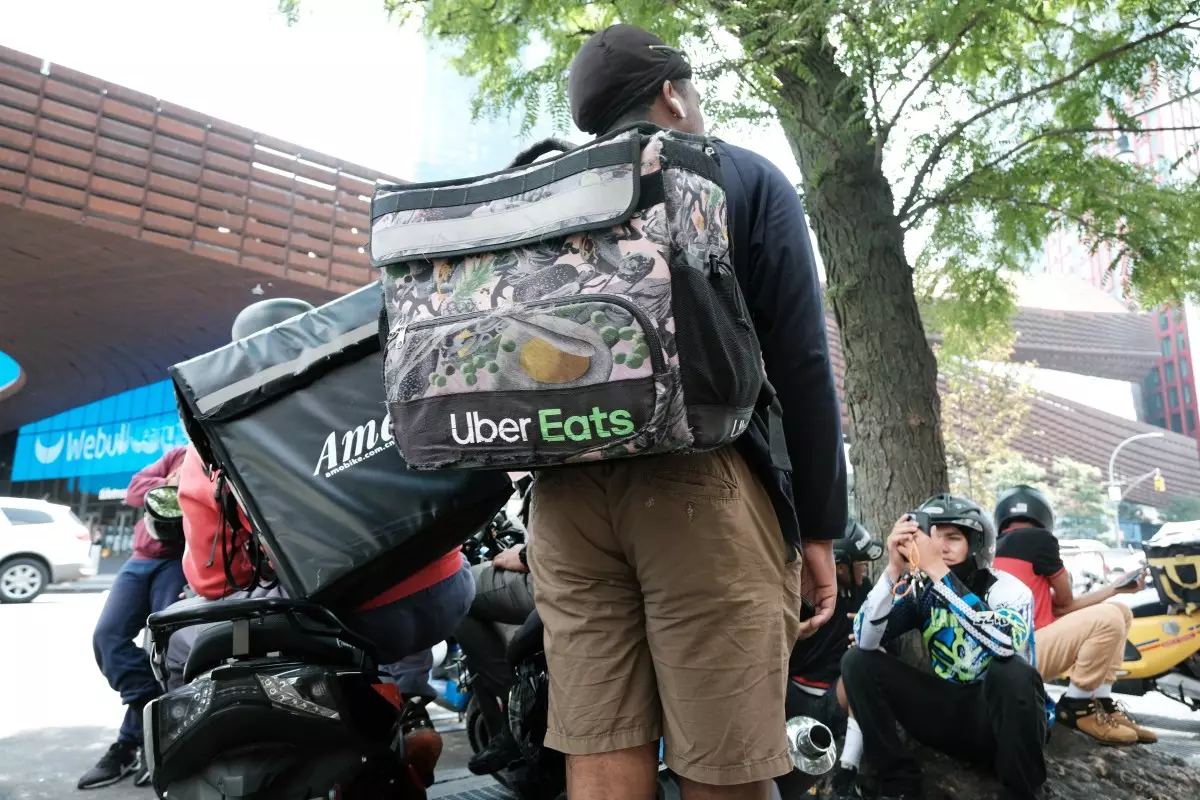In an escalating battle for dominance within the food delivery service market, Uber has initiated legal proceedings against DoorDash, its primary competitor. Filed in California’s Superior Court, the lawsuit accuses DoorDash of engaging in practices that undermine competition by pressuring restaurants to enter exclusive agreements. This situation reveals the complexities and challenges facing the food delivery industry, as major players jockey for position in a market increasingly characterized by aggressive tactics and regulatory scrutiny.
Uber’s lawsuit centers on allegations that DoorDash employs intimidation to secure exclusive partnerships with restaurants. Uber argues that such tactics are not merely isolated incidents but part of a broader, systematic approach to stifling competition. According to Uber’s claims, DoorDash threatens restaurants with hefty fines or even the potential downgrading of their listings on the DoorDash platform if they choose to collaborate with other delivery services. Such practices may raise serious questions regarding the ethical conduct of corporations within an ostensibly free market, as DoorDash purportedly prioritizes its own interests over those of the restaurants it serves.
The implications are significant, not only for competition but also for the myriad independent restaurants that depend on these platforms to thrive. Uber posits that DoorDash’s dominating market position—holding over 90% of first-party deliveries for large enterprises—has led to an environment where many restaurants feel pressured to comply with unfounded demands. Uber’s assertion paints a picture of a marketplace where smaller players, particularly restaurants, are being coerced into decisions that may not serve their best interests.
In response to the lawsuit, DoorDash has denied all allegations, pointing to what it describes as a lack of substance in Uber’s claims. DoorDash’s spokesperson emphasized the company’s commitment to providing a “quality alternative” in the delivery space, dismissing Uber’s accusations as a reflection of its inability to compete effectively. This denial underlines a larger narrative in the tech and delivery sectors: as companies vie for market share, the war of words can be just as intense as the battle over dollars.
The contrasting statements from both companies also signal the fierce competition in the delivery sector. With both Uber Eats and DoorDash continually evolving their offerings, including white-label services like Uber Direct and DoorDash Drive, the pressure to capture and retain customers has never been fiercer. These services allow restaurants to bypass hefty third-party fees by managing their own user interfaces while still utilizing the infrastructure of delivery giants.
The ramifications of this lawsuit could extend beyond the immediate competition between Uber and DoorDash. If Uber’s claims are substantiated, it could prompt regulatory bodies to evaluate the practices of delivery companies more stringently. Antitrust legislation could become more applicable in this context, which might lead to broader changes in how these corporations operate. For restaurants, this could mean a potential shift in power dynamics, allowing them greater freedom to partner with multiple delivery services without the fear of punitive repercussions.
Furthermore, the lawsuit highlights the vulnerabilities within the gig economy—a crucial component of modern delivery services. Restaurant owners who feel cornered into exclusivity may face operational challenges and financial penalties, raising broader questions about the sustainability of such practices. Small businesses, which form the backbone of the restaurant industry, could greatly benefit from a competitive market free from intimidation.
As the legal battle between Uber and DoorDash unfolds, the dialogue surrounding ethical business practices in highly competitive markets becomes increasingly significant. This lawsuit serves as a reminder of the often-overlooked challenges faced by small businesses in dealing with larger, more powerful corporations. Moving forward, the need for transparency and fairness in business interactions will become paramount in ensuring that innovation does not come at the expense of integrity and overall market health. Only time will tell how this contentious issue will resolve and what it will mean for the future of food delivery services.

